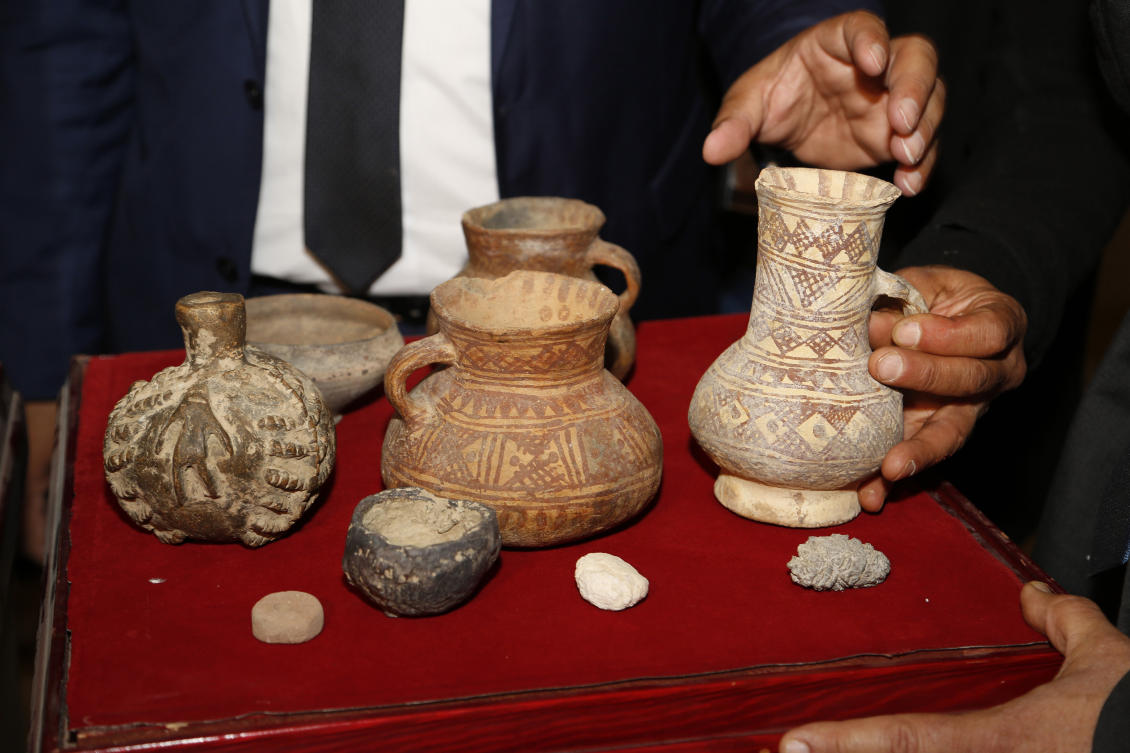US returns smuggled ancient artifacts to Libya
TRIPOLI, Libya: The United States on Thursday returned a cache of smuggled ancient artifacts to Libya as the oil-rich Mediterranean country struggles to protect its heritage against the backdrop of years of war, turmoil and unrest.
The repatriated items include two sculptures dating to the 4th century B.C. from the ancient city of Cyrene.
One, named the “Veiled Head of a Female,” was previously in the hands of a private collector of other illegal artifacts, according to a statement from the US Embassy in Libya. The other, also a Hellenic bust, had been at the Metropolitan Museum of New York since 1998, the statement said. Both were displayed by Libyan antiquities officials at a reception ceremony in the country’s capital, Tripoli.
Libyan antiquities authorities thanked American officials and law enforcement for the returned items and said that they looked forward to future cooperation. The embassy credited the work of the Manhattan District Attorney’s office and Homeland Security Investigations officials for the recovery of the artifacts.
“Although these antiquities were brought illegally to the United States by traffickers, legal efforts have succeeded in returning them to their country of origin,” the embassy statement read.
Libya boasts many ancient Greek and Roman structures, along with a wealth of ancient artifacts in its major museum in the capital of Tripoli and in other museums countrywide, though its archaeological sites have been plundered for decades.
Libya has been wrecked by chaos since a NATO-backed uprising toppled and killed longtime dictator Muammar Qaddafi in 2011. The country was after that split for years between rival administrations in the east and the west, each supported by an array of militias and foreign governments.
Large-scale fighting has only stopped in the past year, but Libyans have yet to unite under a single political leadership, despite strenuous UN-led efforts.
The Greeks founded the settlement of Cyrene, close to the modern town of Shahat, in the 4th century B.C. It was later incorporated into the Roman empire. The United Nations added Cyrene to the list of UNESCO World Heritage sites in 1982 and it has been classified as a location that is particularly endangered due to neglect and looting since 2016.

Iraq receives hundreds of trafficked antiquities from LebanonEnhanced agreement between US and Egypt to prevent antiquities trafficking



